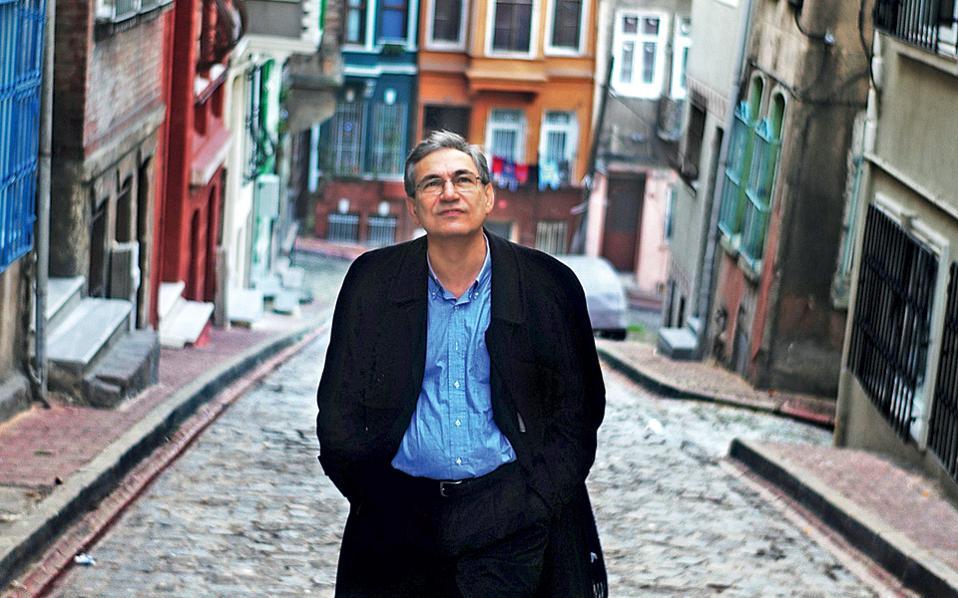-
-
-
Tổng tiền thanh toán:
-

Orhan Pamuk
20/04/2019
Ferit Orhan Pamuk (generally known simply as Orhan Pamuk; born 7 June 1952) is a Turkist novelist, screenwriter, academic and recipient of the 2006 Nobel Prize in Literature. One of Turkey's most prominent novelists, his work has sold over thirteen million books in sixty-three languages, making him the country's best-selling writer.
Pamuk has said that growing up, he experienced a shift from a traditional Ottoman family environment to a more Western-oriented lifestyle. He wrote about this in his first published novel, a family chronicle entitled Mr. Cevdet and His Sons, which in the spirit of Thomas Mann follows the development of a family over three generations.
His second novel, The House of Silence, uses five different narrator perspectives to describe a situation in which several family members visit their ageing grandmother at a popular seaside resort with Turkey teetering on the brink of civil war. The period is 1980. The grandchildren’s political discussions and their friendships reflect a social chaos where various extremist organisations vie for power.
Pamuk’s international breakthrough came with his third novel, The White Castle. It is structured as an historical novel set in 17th-century Istanbul, but its content is primarily a story about how our ego builds on stories and fictions of different sorts. Personality is shown to be a variable construction. The story’s main character, a Venetian sold as a slave to the young scholar Hodja, finds in Hodja his own reflection. As the two men recount their life stories to each other, there occurs an exchange of identities. It is perhaps, on a symbolic level, the European novel captured then allied with an alien culture.
Pamuk’s writing has become known for its play with identities and doubles. The issue appears in his novel The Black Book in which the protagonist searches the hubbub of Istanbul for his vanished wife and her half-brother, with whom he later exchanges identities. Frequent references to the mystic tradition of the East make it natural to see this in a Sufi perspective. The Black Book represented a definite break with the governing social realism in Turkish literature. It provoked debate in Turkey not least through its Sufism references.
The New Life is a novel about a secret book with the capacity to irrevocably change the life of any person who reads it. The search for the book provides the structure of a physical journey but bordered by literary references, thought experiments in the spirit of mysticism, and reminiscences of older Turkish popular culture, turning the plot into an allegoric course of events correlated with the Romantic myth of an original, lost wisdom.
According to the author, the major theme of My Name is Red is the relationship between East and West, describing the different views on the artist’s relation to his work in both cultures. It is a story about classical miniature painting and simultaneously a murder mystery in a period environment, a bitter-sweet love story, and a subtle dialectic discussion of the role of individuality in art.
Pamuk’s latest novel is Snow. The story is set in the 1990s near Turkey’s eastern border in the town of Kars, once a border city between the Ottoman and Russian empires. The protagonist, a writer who has been living in exile in Frankfurt, travels to Kars to discover himself and his country. The novel becomes a tale of love and poetic creativity just as it knowledgeably describes the political and religious conflicts that characterise Turkish society of our day.
Các tin khác
- Sách Ngoại Văn - BOA Bookstore 01/06/2019
- BOA Bookstore (Vietnam) shortlisted for LBF International Excellence Awards 26/03/2019
- Văn hoá đọc sách tại TP. Hồ Chí Minh 28/02/2018
- Fostering A Culture Of Reading In Saigon Today By Lilly Pugh 28/02/2018
- 12 cool indie bookstores in Asia every bibliophile should visit 28/02/2018
- Saigoneer’s Picks: 10 Places to Buy Artsy Gifts in Vietnam 26/02/2018
- English language books in Ho Chi Minh City 23/02/2018

